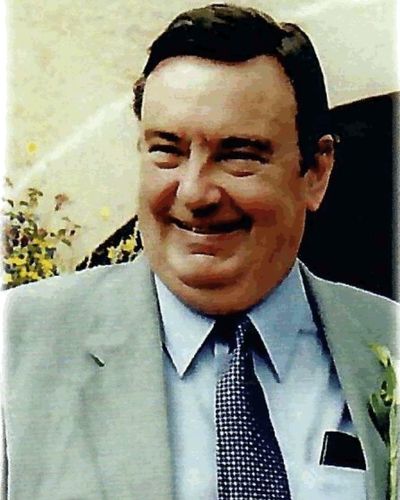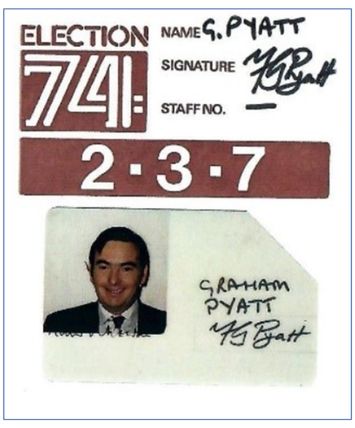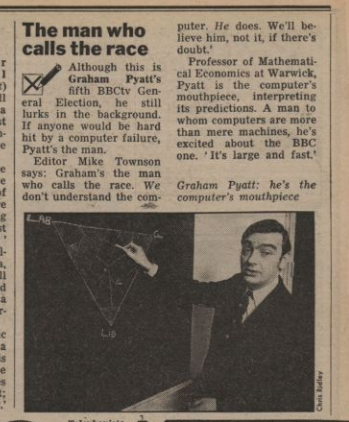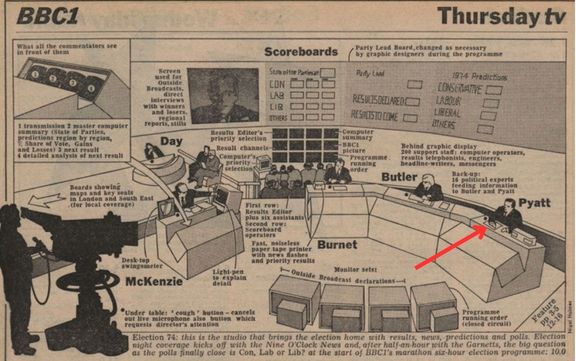Memories of Graham Pyatt

Tribute to
Professor Graham Pyatt
Head of Department of Economics
1970 - 71
Alan Roe and Jeff Round, former colleagues in the the Department, pay tribute to Professor Graham Pyatt who passed away in February 2023.

Graham Pyatt (1937-2023) - a tribute to one of the founders of Warwick Economics
Born in Manchester, Graham studied at Manchester for a BA in Economics, for his MA at Chicago and then at Nuffield College Oxford, before joining the Department of Applied Economics at Cambridge (1959-64) on the Cambridge Growth Project directed by Nobel Laureate Sir Richard Stone. In this period he completed a PhD, later published by Cambridge University Press in 1964 -Priority Patterns and the Demand for Consumer Goods. [1].
Then, at the very young age of 28, he became Professor Dick Sargent's first appointment at Warwick with the title Professor of Mathematical Economics. Both Graham and Dick were strongly influenced by their recent experiences of economics training in the USA (Chicago and MIT respectively), and Warwick's new Economics degree programmes reflected this, as well as Graham's technical background and the importance he attached to mathematical and statistical methodologies.
Developing Economics at Warwick
At Warwick, as in some of the other emerging 1960s universities, a new type of economics training emerged to challenge the more verbal traditions that had been prominent until then. In the early years, Graham was also involved in various assignments at University level (e.g. setting up the CIEBR, a forerunner of the Warwick Business School, with Hugh Clegg).
The work at Cambridge was a natural extension of the statistical foundations that Richard Stone and James Meade had laid in the early 1940s under the direction of John Maynard Keynes: pioneering national income accounting for the UK. At Warwick, Graham found an opportunity to extend this work to address new emerging issues in Development Economics. Specifically in the early 1970s he joined ILO World Employment Programme (WEP) missions to Iran and Sri Lanka: WEP being an early attempt to move development policy away from a narrow focus on growth and towards objectives such as improved employment and income distribution.
Graham quickly saw that this changing emphasis required a new analytical approach and statistical framework. Consequently, in 1973-75 he led teams that developed prototypes of such a framework for Sri Lanka and Swaziland basing these on extended versions of the Social Accounting Matrices (SAMs) that Stone had demonstrated in his work for the UN System of National Accounts (SNA). These teams included a strong Warwick contingent as well as economists from Oxford. Led by Graham, the teams inter alia produced a major book, published by CUP in 1977: widely quoted as a model for similar work by others [2].
Pyatt as General Election Guru
In 1970 and 1974 Graham was one of the front men in the BBC General Election broadcasts, working alongside the Oxford psephologist David Butler, who explained 'swing', and Robert McKenzie, with his 'swingometer'.
"Graham's the man who call the race. We don't understand the computer. He does. We'll believe him, not it, if there's a doubt."
BBC editor Mike Townson, 1974



The 1974 Election
Graham was one of the team featured in the Radio Times special 1974 General Election issueLink opens in a new window which introduced the enormous number of people whose work had to be carefully choreographed in order to bring the results to the national audience.
He was also mentioned by Eleanor Bley Griffiths in her Radio Times article of 8 June 2017 - How early computers and "The Brain" transformed BBC election coverageLink opens in a new window described by editor Mike Townson as a computer whiz
.
We are grateful to Radio Times for their permission to use their archive images in this article
At the World Bank
In this same period, the World Bank was beginning to internalise the proposition that 'economic development' could not be narrowly based on the growth of GDP aggregates but also needed to embrace other dimensions of economic and social progress. Its President Robert McNamara kicked off this change with a famous Nairobi speech in 1973 in which he placed poverty reduction at the centre stage of the Bank's agenda: where it still resides. One result was the Bank's establishment of its Development Research Centre (DRC). In 1976, Hollis Chenery (the VP for Development Policy) invited Graham to join that Centre as Senior Adviser. In essence, Graham was expected to provide some of the necessary technical underpinnings for McNamara's new mission for the Bank. In the subsequent 5-7 years he responded prolifically to this expectation.
Graham was undoubtedly a major influence on improving the Bank's policy modelling capacity. In doing so he also inspired a large group of bright young modellers who have subsequently taken this capability to a whole new level.
Building on his earlier work at Warwick, he first, introduced and further elaborated the SAM concept as an appropriate statistical framework. Second, based on these SAMs, he helped to develop Computable General Equilibrium (CGE) and related modelling approaches [3], to use alongside input-output and multiplier models [4], for policy analysis. A short book by Graham Pyatt and Erik Thorbecke set out their ideas and motivations very well. [5] Third, he helped to initiate the now very well-known Living Standards Measurement Study (LSMS). This was a pioneering multi-purpose, multi-dimensional household survey capability, designed to monitor the effects of development policies on the poor. All three of these innovations were quickly mainstreamed and used both inside the World Bank and increasingly beyond and were applied in many developing economies. Graham was undoubtedly a major influence on improving the Bank's policy modelling capacity. In doing so, he also inspired a large group of bright young modellers who have subsequently taken this capability to a whole new level. Many of these were/are economists in the developing world whose countries were the targets of the work.
Back at Warwick Economics
Graham returned to the Economics Department at Warwick in 1987 as the Coopers and Lybrand (C&L) Research Professor in Economics - a post that he held for seven years. C&L endowed this chair in recognition of his contributions in helping the erstwhile audit firm of Cooper Bros establish a major presence in economics consultancy. These included a project to develop a pricing strategy for British Telecom; a major modelling exercise to assess the cost: benefit of the Channel Tunnel; and a massive job for Saudi Arabia helping Bechtel to assess the economic impact of a new town and petrochemical complex at Jubail: all were significant pieces of applied economic analysis.

Entrance to the Faculty of Social Sciences 1987, courtesy of Steve Messenger
Chair at the Institute of Social Studies in The Hague
Graham's final professional move came in 1994 when he accepted a Chair at the Institute of Social Studies (ISS) in The Hague, where he stayed until his retirement in 2002. At the ISS, high quality theoretical work is combined with serious attention to real world policies. This combination ideally suited Graham's own attributes: several further publications followed and many overseas students benefitted from his teaching and support during this later period. Certainly, his work there was much appreciated and his eventual retirement was marked by a generous and moving Dutch festschrift seminar attended by a large body of his fellow faculty and students, with the papers subsequently published.
The majority, young and old, encountered him as a warm and cultured human being: a dedicated researcher; strongly loyal to his family and friends; committed to the task of helping to shape a better world; and deploying his undoubted talents and charm to deliver in all these areas.
Graham was a distinguished economist and an independent thinker who inspired and helped many people. He was strongly loyal to his family and friends; committed to the task of helping to shape a better world; and deploy his undoubted talents and charm to deliver in all these areas.
